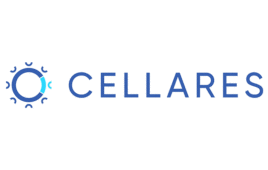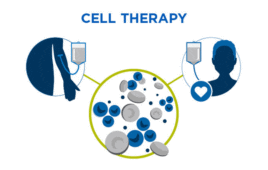Oncology may continue be one of the hottest sectors across the pharma sector, but other therapeutic areas are catching up in terms of innovation and investment. While oncology and hematology jointly accounted for about one-third of the new FDA approvals in 2023, investors are increasingly betting on precision medicine, advanced drug delivery systems and the use of…
50 of the best-funded biotechs of 2023
As the year draws to a close, it is clear that molecular science and diagnostics is the hottest funding area in the biotech industry. In an analysis of 50 of the best-funded biotechs of 2023 focused on human health, molecular and science and diagnostics startups collectively attracting roughly $945 million, dwarfing the figures in other…
Cellares teams up with Bristol Myers Squibb to explore automated CAR-T cell therapy manufacturing
Less than a week after announcing that it has secured $255 million in Series C funding, South San Francisco-based startup Cellares has revealed that Bristol Myers Squibb has joined its Technology Adoption Partnership (TAP) program. To date, the company has raised more than $355 million in total financing. As part of the TAP program, Bristol…
Development challenges and regulatory changes for cell and gene therapies
Cell and gene therapies are the fastest growing area for drug development. The groundwork for this category was laid with the mapping of the human genome in 2003, and the field has developed rapidly in the intervening decades. These powerful therapies have significant potential for the treatment of cancer and other previously “undruggable” diseases. But…
Prominent cell and gene therapy vendors in 2023
In recent years, the cell and gene therapy market has grown at a rapid clip. The momentum is likely to continue. According to Vision Research Reports, the global cell and gene therapy market size could hit around $42.56 billion by 2030, growing at a CAGR of 39% from 2022 to 2030. The burgeoning demand in…
How Cellares aims to transform cell therapy manufacturing
The startup Cellares has a mission to enable industrial-scale cell therapy manufacturing with its Cell Shuttle, which it dubs a “factory in a box.” The germ for the idea traces back to market research that South San Francisco, California-based Cellares co-founder and CEO Fabian Gerlinghaus focused on in a prior role. While attending industry conferences,…
How first-generation outcomes data can advance future cell therapies
The cell therapy industry is in the early stages of growth and development, with only a few having secured regulatory approval. This approval comes with regulatory requirements that ensure safety, including patient outcomes data collection for up to 15 years post-infusion. While daunting, the strings attached to these first-generation therapy approvals help understand safety and…







